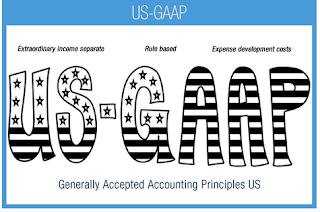The Accounting Principles Board
served as the deliberative body for the American Institute of Certified Public
Accountants (AICPA), a professional association for those in the accounting
industry. This board offered opinions and statements on generally accepted
accounting principles (GAAP) in the United States from 1959 to 1973. These
standards are used by accountants with federal agencies and corporations. The
AICPA replaced the Accounting Principles Board with the Financial Accounting Standards
Board (FASB) in 1973 to increase responsiveness to accounting issues.
The historical reputation of the
AICPA provided legitimacy to the Accounting Principles Board during its brief
life. The AICPA was created in 1887 as the leading industry organization for
accountants working in the U.S. This institute set ethical, educational and
professional standards for accountants at a time when corporations were
expanding worldwide. The first board within the AICPA was the Committee on
Accounting Procedure, which existed from 1936 to 1959. The board built on the
committee’s work in preventing corrupt accounting principles that contributed
to the 1929 stock market crash.
The U.S. Securities and Exchange
Commission (SEC) relied on the Accounting Principles Board to establish
accounting standards. The SEC is authorized under the Securities Exchange Act
of 1934 to set standards for bookkeeping by publicly traded companies. SEC
officials have worked with AICPA since 1934 to use the organization’s
accounting knowledge for the public good. This public-private partnership
allows the SEC to consult with leading accountants on ways to keep accurate
accounting ledgers. Most of the opinions by the Accounting Principles Board and
FASB have been incorporated into federal policies on public accounting.
The board issued 35 opinions and
statements during its 14-year existence. Corporations and government agencies
still use 19 board opinions as part of GAAP. A December 1967 decision by the
board created criteria for reporting asset depreciation and deferred
compensation. In August 1970, the board generated principles for reporting the
transfer of assets as part of business combinations and mergers. The board’s
decision in October 1972 set standards for corporate reporting of stocks used
as payment for employees.
The AICPA replaced the Accounting
Principles Board with FASB in 1973 because of criticisms of the previous board.
The Accounting Principles Board was seen by critics as insufficiently
independent from the federal government and corporations. The design of the
FASB is informed largely by the failings of its past boards. The FASB requires
its members to resign from corporate boards and sell off business interests
during their five-year terms. These requirements allow FASB members to create
accounting standards independent of personal and financial interests.
Generally accepted accounting
principles (GAAP) are the guidelines, rules, and procedures used in recording
and reporting accounting information in audited financial statements. Various
organizations have influenced the development of modern-day accounting
principles. Among these are the American Institute of Certified Public
Accountants (AICPA), the Financial Accounting Standards Board (FASB), and the
Securities and Exchange Commission (SEC). The first two are private sector
organizations; the SEC is a federal government agency.
The AICPA played a major role in the
development of accounting standards. In 1937 the AICPA created the Committee on
Accounting Procedures (CAP), which issued a series of Accounting Research
Bulletins (ARB) with the purpose of standardizing accounting practices. This
committee was replaced by the Accounting Principles Board (APB) in 1959. The
APB maintained the ARB series, but it also began to publish a new set of
pronouncements, referred to as Opinions of the Accounting Principles Board. In
mid-1973, an independent private board called the Financial Accounting
Standards Board (FASB) replaced the APB and assumed responsibility for the
issuance of financial accounting standards. The FASB remains the primary
determiner of financial accounting standards in the United States. Comprised of
seven members who serve full-time and receive compensation for their service,
the FASB identifies financial accounting issues, conducts research related to
these issues, and is charged with resolving the issues. A super-majority vote
(i.e., at least five to two) is required before an addition or change to the
Statements of Financial Accounting Standards is issued.
The Financial Accounting Foundation
is the parent organization to FASB. The foundation is governed by a 16-member
Board of Trustees appointed from the memberships of eight organizations: AICPA,
Financial Executives Institute, Institute of Management Accountants, Financial
Analysts Federation, American Accounting Association, Securities Industry
Association, Government Finance Officers Association, and National Association
of State Auditors. A Financial Accounting Standards Advisory Council
(approximately 30 members) advises the FASB. In addition, an Emerging Issues
Task Force (EITF) was established in 1984 to provide timely guidance to the
FASB on new accounting issues.
The Securities and Exchange
Commission, an agency of the federal government, has the legal authority to
prescribe accounting principles and reporting practices for all companies
issuing publicly traded securities. The SEC has seldom used this authority,
however, although it has intervened or expressed its views on accounting issues
from time to time. U.S. law requires that companies subject to the jurisdiction
of the SEC make reports to the SEC giving detailed information about their
operations. The SEC has broad powers to require public disclosure in a fair and
accurate manner in financial statements and to protect investors. The SEC
establishes accounting principles with respect to the information contained
within reports it requires of registered companies. These reports include: Form
S-X, a registration statement; Form 1O-K, an annual report; Form 1O-Q, a
quarterly report of operations; Form S-K, a report used to describe significant
events that may affect the company; and Proxy Statements, which are used when
management requests the right to vote through proxies for shareholders.


